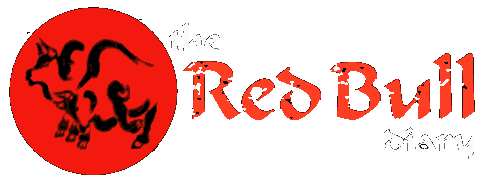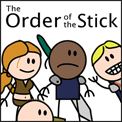On Hit Points
Troy of Socratic Design posted an article yesterday talking about hit points versus damage-per-second in MMORPGs. In it, he linked to an essay written by Jonathan Tweet (co-creator of my personal favorite RPG, Ars Magica) on hit points in AD&D. It's Tweet's piece that I ended up reading twice and mulling over for a little while, because he makes a really good point.
Everyone and their brother has bashed the hit point system. I know I have. There are all sorts of forms that this complaint takes, such as "Why do hit points increase with level?" or "How can a 12th-level fighter take more damage than a rhinoceros?" All of these complaints boil down to basically the same thing: hit points are unrealistic. And it's true, they are. But that's not necessarily a bad thing. Tweet explains:
For the gamist, this suspension of reality is done for a very good reason: it enhances the playability of the game. It makes it more fun, because it keeps things balanced, keeps your character alive, and makes the GM's job of providing solid challenges a little bit easier.Back in high school, when I switched from (thoroughly hacked) D&D to RuneQuest, part of the reason I did so was that RQ has a more realistic hit point system. In RQ, even a tough character can die with a single lucky blow (say, a critical impale to the head). In D&D, a player can assess the combat and calculate when there's no chance whatever that a given blow is going to take their character out. RQ seemed more realistic. And it I still think it is.
But I played a lot of RQ, and bad things happened. In one memorable incident, a long-running character was killed by a single lucky shot in an encounter that was supposed to be a diversion. More generally, once the characters were tough enough to take on big monsters, such as griffins, the monsters' ability to deal lots of damage made them hard to balance. Characters that dodged or parried were OK, but those that let a monster's attack through, or got critted, went down. Even at lower levels, the chance that an attack might disable one's sword arm or knock one down meant that a character's position in a fight could take an unpredictable dive.
In my early fantasy role playing game design, I actually used two sets of hit points to strike this balance between playability and realism. Constitution was lost when taking damage that actually tore your body up, Endurance was lost when taking damage that knocked you around. If you ran out of Constitution, you were considered incapacitated: your character was lying on the ground, bleeding badly and unable to move. If you ran out of Endurance, you were considered unconscious. If you lost both, then the character died. Normally, characters had more Endurance than Constitution, but armor normally worked better at absorbing Constitution damage than Endurance damage. This worked well because you could be knocked out of a fight fairly easily, but dying was hard because you had a lot more points to chew through.
This is the main thing about games without hit points ("critical hit" systems suffer from this problem, too): it's fun when you get a lucky hit in to cut the bad guy's head off, but it doesn't seem like much fun anymore when that random encounter kills a character that you've played for a long time. My goal, like Jonathan's, is that this is something to be avoided, because while it may be realistic, it can really kill your fun.
Hit points (like levels) is one of those design conventions that never seems to go away, because it solves a common problem in a way that is clean and very simple. From a simulationist point of view, they cause all sorts of problems because they're just not reflective of reality. For the narrativist, it robs us of opportunities for tragic accidents. Screw all that. I'm a gamist. Let's just play the game.
Labels: game design, roleplaying

 RSS
RSS

